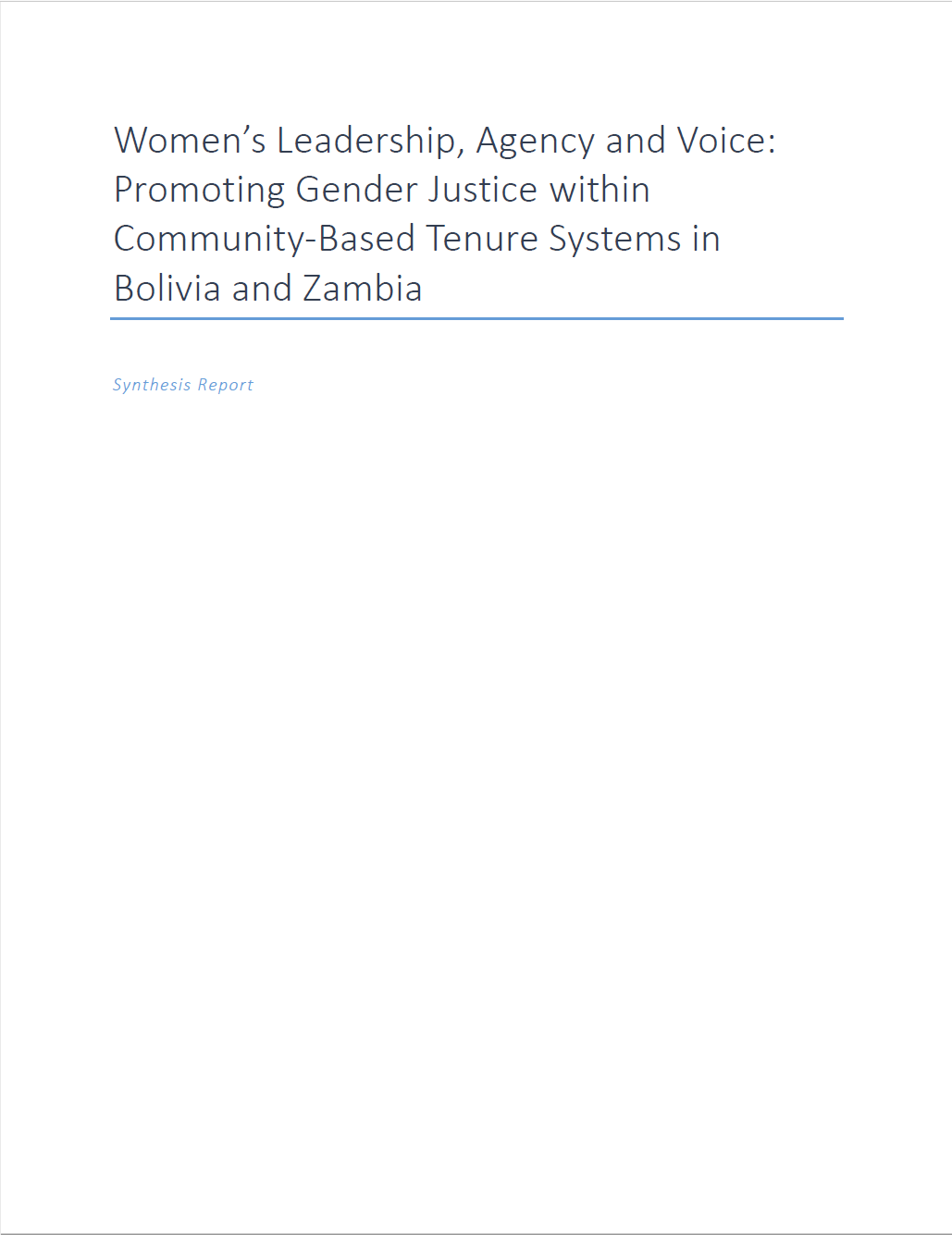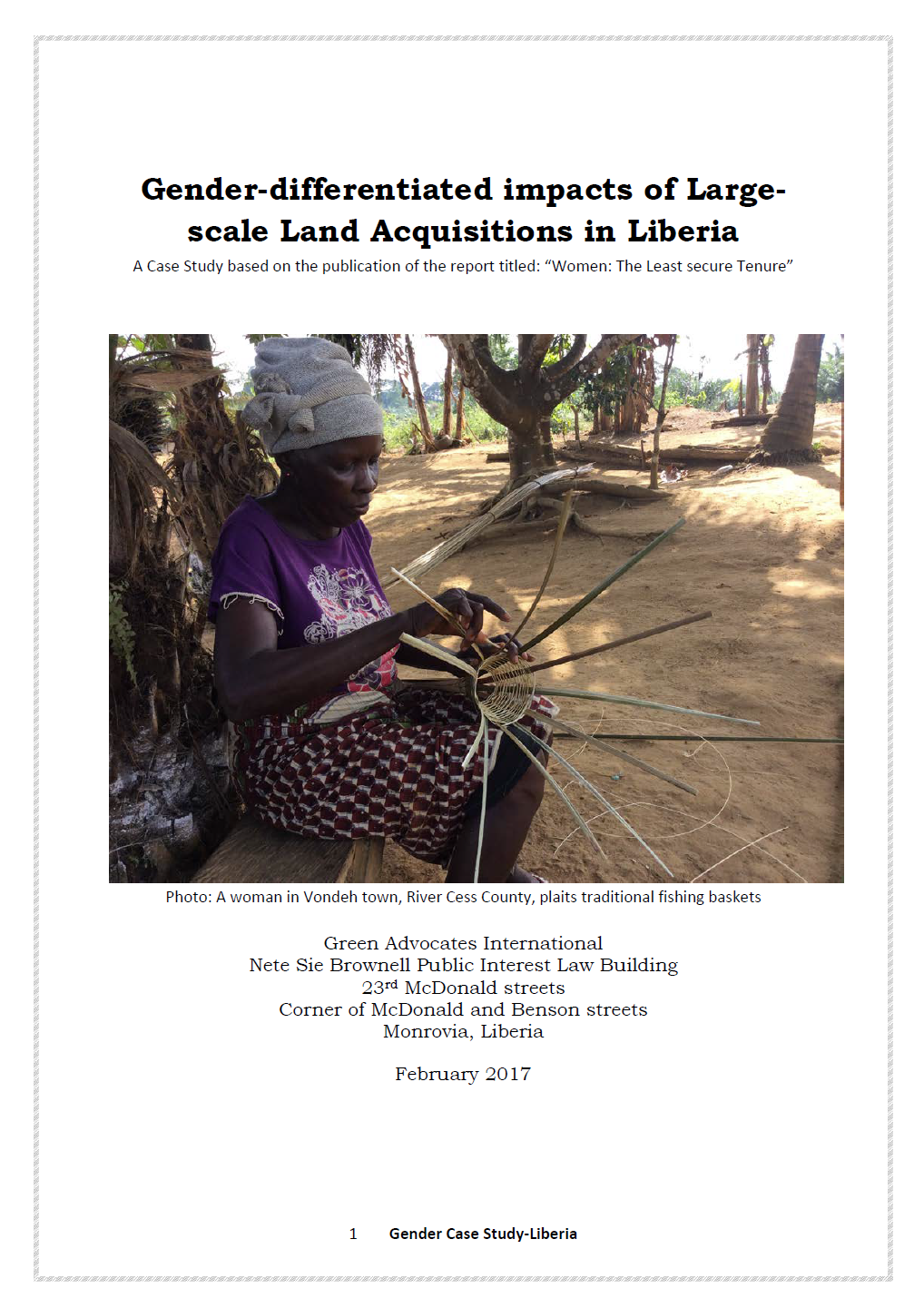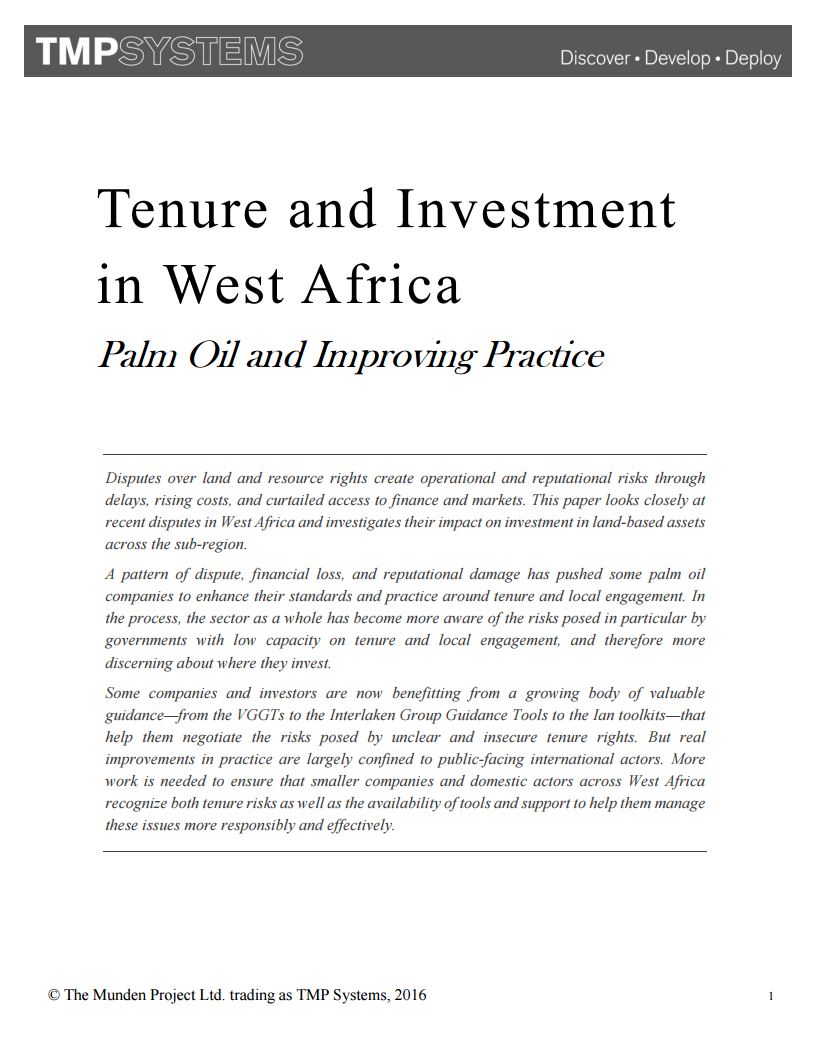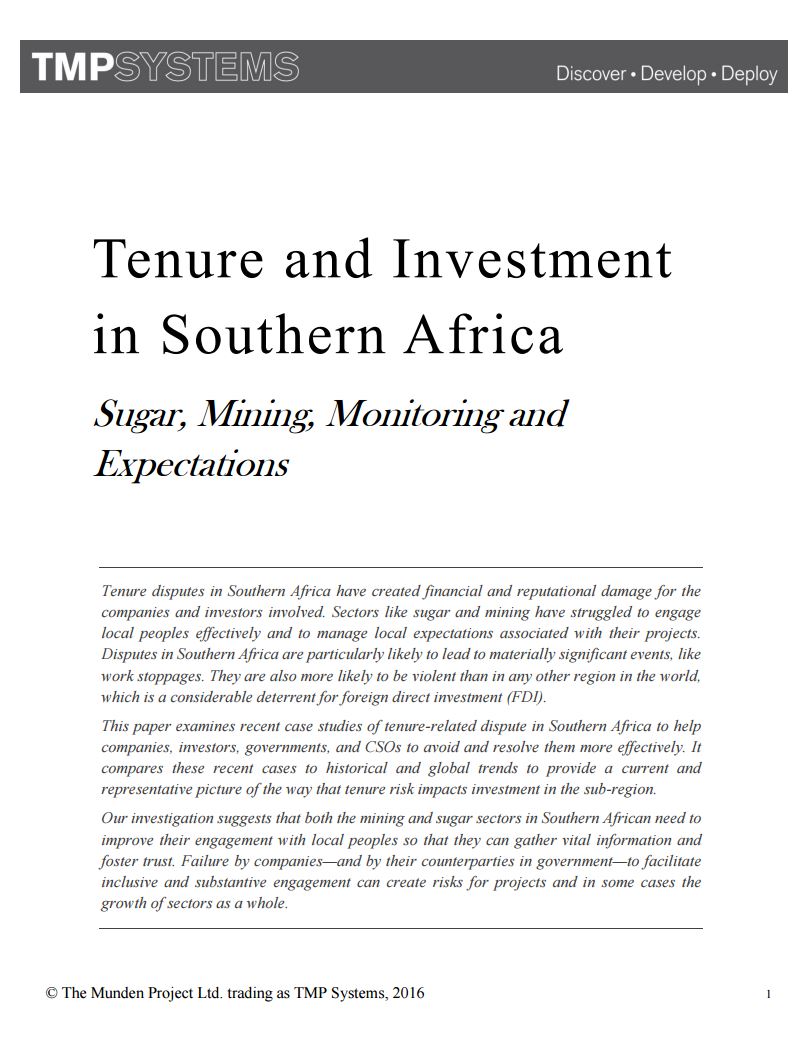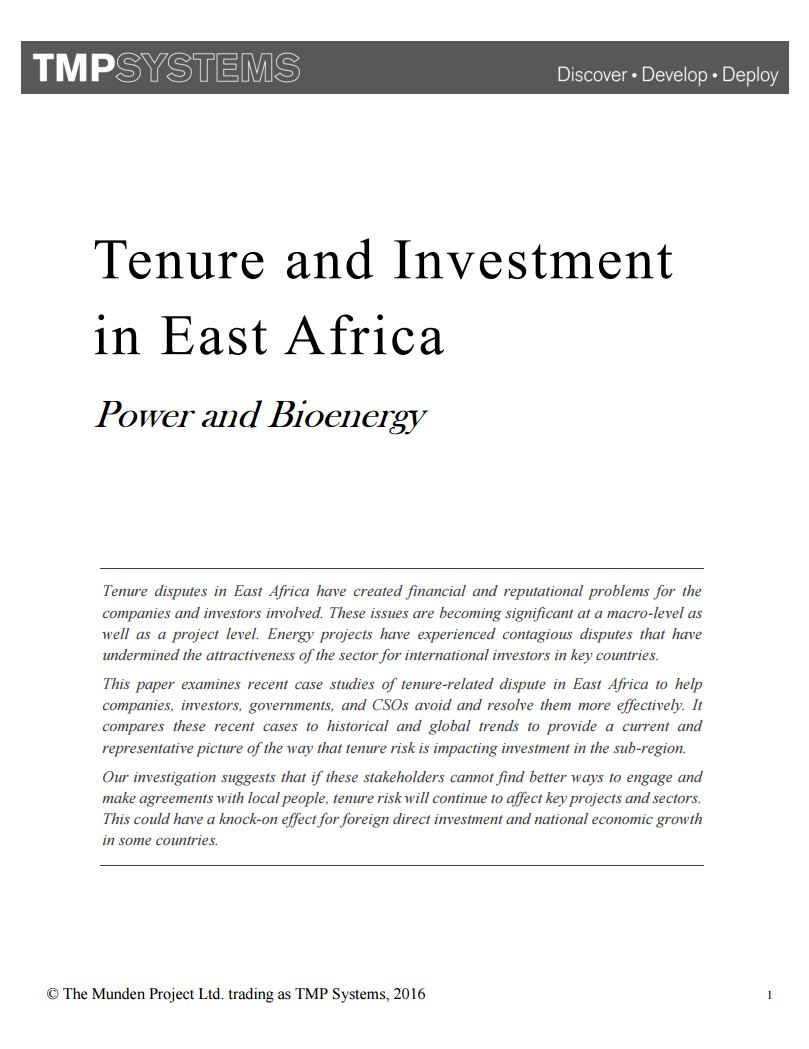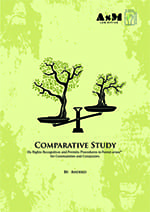This report synthesizes research findings on gender dynamics and the implications for gender justice in community-based tenure systems in Zambia and Bolivia.
A study found that the impact of large scale land acquisitions has caused women to lose their rights to use, access and own land for housing or farming, forest and forest products as well as other natural resources in their communities.
Disputes over land and resource rights create operational and reputational risks through delays, rising costs, and curtailed access to finance and markets.
Tenure disputes in Southern Africa have created financial and reputational damage for the companies and investors involved.
This paper examines recent case studies of tenure-related dispute in East Africa to help companies, investors, governments, and CSOs avoid and resolve them more effectively.
The objective of this study is to understand the differences in practice as experienced by the business world compared with the experiences of communities, namely farmer organizations, villagers and indigenous peoples, in securing their rights and maintaining access to lands and forests.

